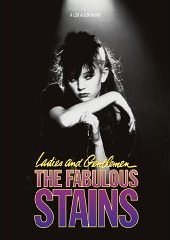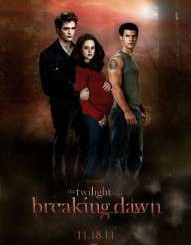 It seems odd that a movie which has barely been seen can have a wide spread cultural influence, but it is a claim that could be justifiably made by Lou Adler’s rock and roll satire Ladies And Gentlemen, The Fabulous Stains
It seems odd that a movie which has barely been seen can have a wide spread cultural influence, but it is a claim that could be justifiably made by Lou Adler’s rock and roll satire Ladies And Gentlemen, The Fabulous Stains.
Although it barely received a release in 1982, the film received sporadic screenings on USA Network’s trendsetting Night Flight late night series and on pay cable through the 80s. Bootleg video tapes were probably more instrumental in people discovering the film’s story of three disaffected teenage girls (Diane Lane, Laura Dern and Marin Kanter) who form a punk band, the titular Stains, and rocket to stardom more on the strength of the media’s embrace of lead singer Corrine “Third-Degree” Burns’s (Lane) on-stage bravado than on any actual musical talent. Many have credited the film with helping to inspire many of the founders of the 1990s riot grrl movement, with Hole frontwoman Courtney Love even using a variation Corrine’s statement “I think every citizen should be given an electric guitar on their sixteenth birthday” in interviews.
But the release of the film on DVD last week finally gives a wider audience a chance to see and evaluate the film on its own merits. However, it appears that the film’s reputation may parallel the band’s fictitious rise, with more people talking about it rather than actually having seen it. This leaves us in the position where that the film’s impact may probably be stronger than the film itself.
Ladies And Gentlemen, The Fabulous Stains was Adler’s second film, following the Cheech and Chong stoner comedy Up In Smoke. Prior to that, he was mostly known as a music producer, though he had a few film production credits to his name, most notable another cult, rock and roll satire, The Rocky Horror Picture Show. Unfortunately, this film is fairly uneven. From The Fabulous Stains‘ opening (look for Star Trek: The Next Generation‘s Brent Spiner in a blink-and-you-miss-him role in the film’s first five minutes) until the girls hop a band’s tour bus to start their rise to fame is narratively choppy. The storytelling does smooth out a bit, scoring some satiric blows against the music industry and how people react to and embrace pop culture fads. Unfortunately, the film ends with a coda – filmed a year after principal photography had already wrapped – that either undermines what has gone before or is just a cynical denouncement of the punk movement in general. Either way, it is a lousy way to end the film.
Amazingly, though, The Fabulous Stains is simultaneously of-the-moment and prophetic. Although shot in 1981, Corrine’s bleach-streaked hair and Patrick Nagel inspired angular eye makeup bears an uncanny resemblance to Annabella Lwin, leader singer of the British new wave group Bow Wow Wow, who rocketed to a brief popularity in 1982 with their Bo Didley-inspired “I Want Candy.” The manner in which Corrine’s growing legions of fans begin dressing like her and dyeing their hair like hers manages to presage the Madonna Wannabe craze by about three years.
Although its transfer is nearly impeccable, the extras on the disc are a bit lacking. In additino to the prerequisite trailer, there is a small photo gallery and two commentary tracks. The first, featuring director Adler, is rather dry, with Adler leaving long spaces of silence before offering another tidbit of information. He does deserve some credit for candidness, whether remarking about certain aspects of the production or the less than hoped for acting talent of some of the cast. In contrast, the commentary track featuring Lane and Dern is a lot more warm and relaxed. It is clear that although the film did not meet with the success that they had probably hoped for it, they still retain an affection for it and the time they spent making it. One has to wonder, though, what would have resulted if Adler, Lane and Dern had recorded a single track together. Presumably, the two ladies could have gotten the taciturn director to open up a bit more.




